Geisha Coffee Beans: The Most Sought-After Coffee in the World
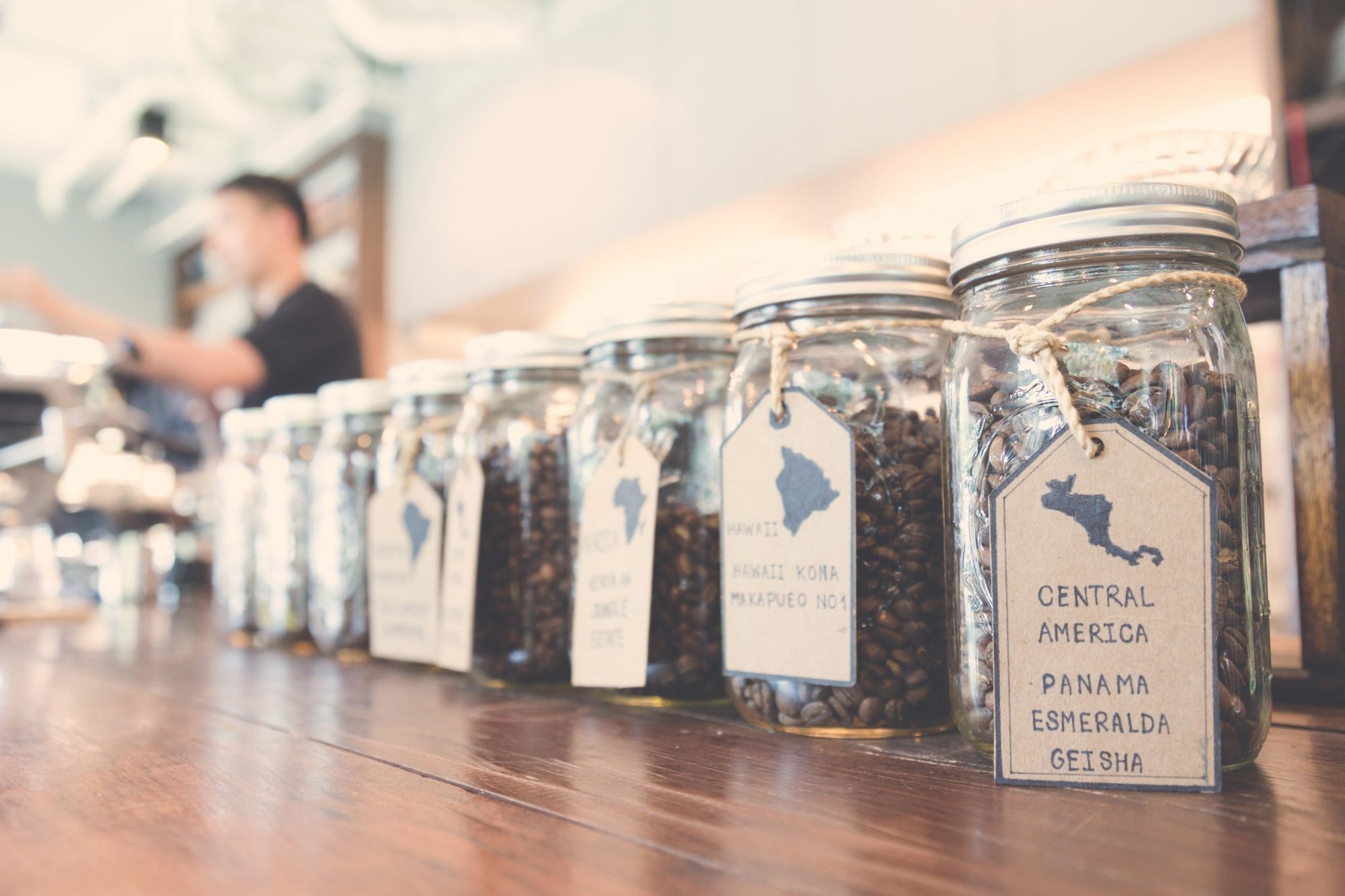
display of specialty coffee beans in coffee shop, vintage tone and selective focus. Adobe Stock photo.
Of the many varieties of coffee, Geisha stands alone.
With its aromatic and smooth floral and fruity flavors, most coffee connoisseurs agree that when it comes to fine indulgences, Geisha is among the best.
When dealing with wine, the better the grape and harvest, the better the flavor, and, ultimately, the more expensive it will be. Geisha coffee is no different. The beans originated in Ethiopia from the Gori Gesha forest, though through a miscommunication, the coffee was misspelled as “Geisha,” a term most notably associated with a female Japanese entertainer. The two have no correlation, and today, either spelling of the coffee is acceptable.
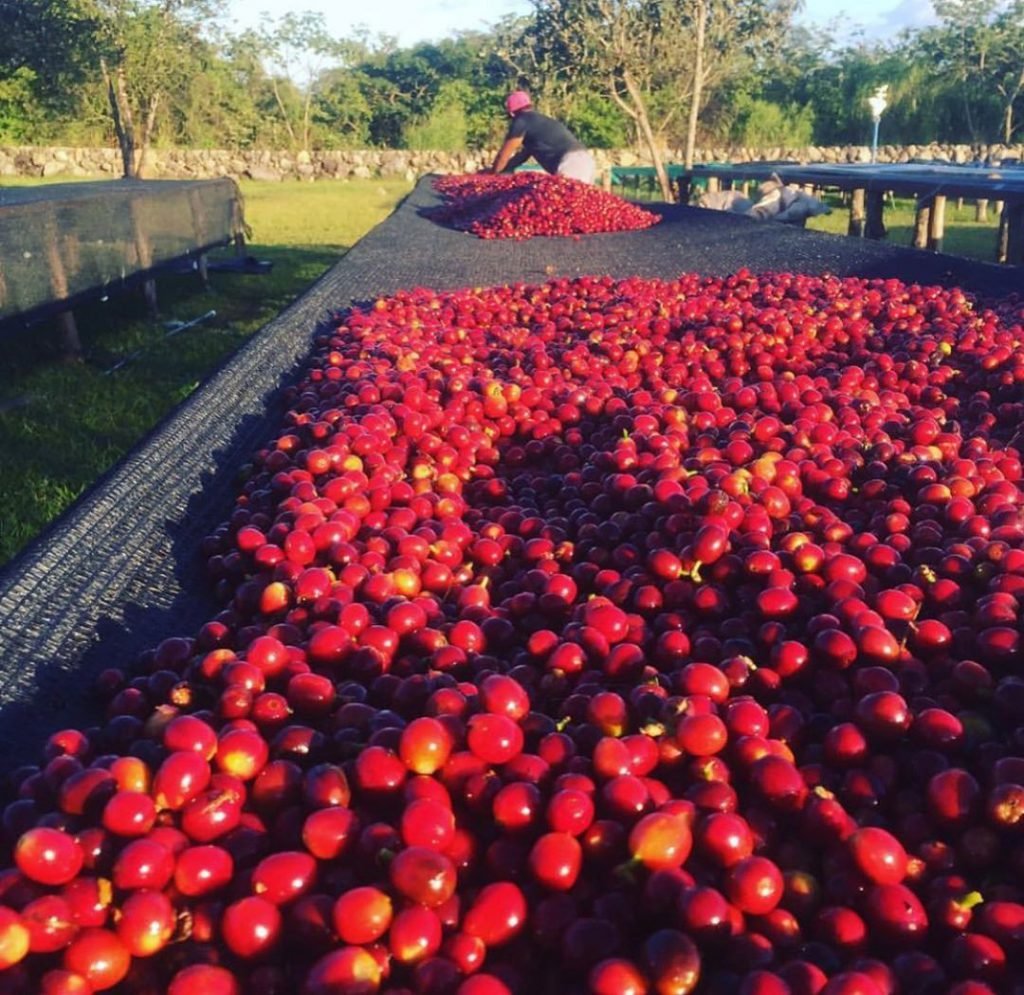
The Geisha bean was transported from Ethiopia to Costa Rica in 1953 to be studied by the Tropical Agricultural Research and Higher Education Center. The varietal found its way to the Panamanian plantations by the 1960s, where the most popular Geisha coffee beans are farmed to this day.
Geisha coffee began to gain global recognition in the 2000s when coffee farmers discovered that planting the coffee bean at a higher altitude greatly improved its flavor. The composition of the bean itself changed as well, becoming larger in size with elongated leaves and even turning red in color, similar to that of a cherry.
The brewed results of this rarified bean would soon change the coffee industry completely as these evolved beans produced a variety of refreshing flavors, stunning even the most experienced coffee drinkers. According to an article in Vine Pair, Panamanian Geisha beans were first auctioned in 2004 for $21 per pound, when the next most expensive auctioned coffee of that time was going for $4.80.
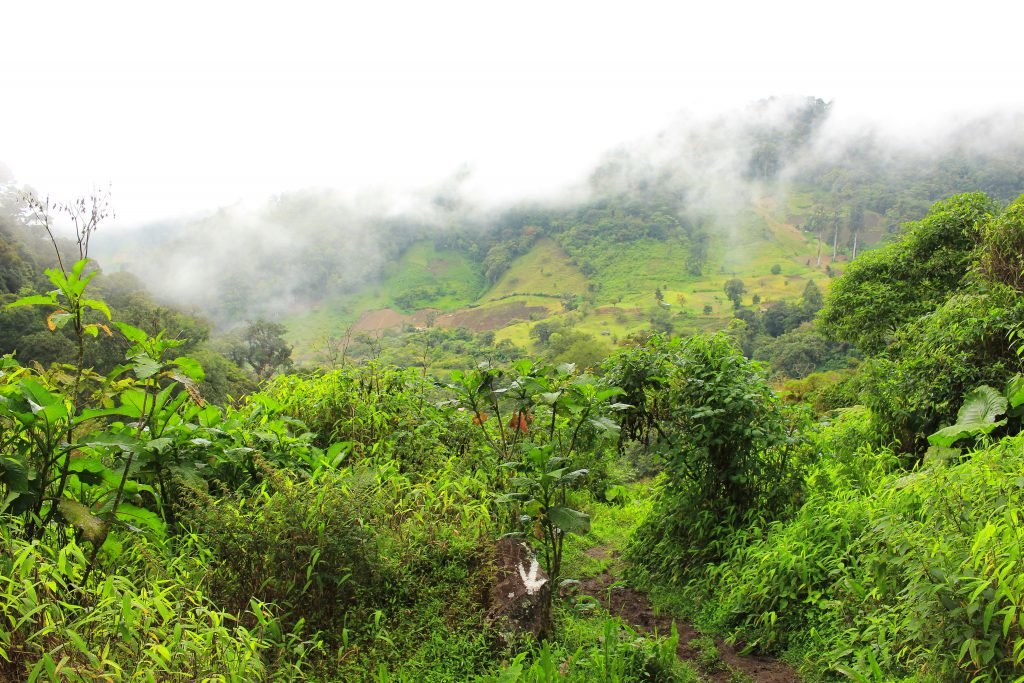
Most notably, Panama’s Elida Geisha Green Tip Natural auctioned for $1,029 per pound in 2019 at the Best of Panama coffee competition held by the Specialty Coffee Association of Panama. The SCAP gave the coffee a score of 95.5.
How is this exquisite coffee made?
Geisha coffee is unique in taste due to the plant itself, as well as the process of drying and roasting the beans. Geisha beans are hand-picked, dried for precisely eight days, and then roasted to completion, resulting in a refined cup of coffee that can cost $18 a cup in New York City, and even as high as $68 a cup in Dubai. Some say it’s worth the price — Elida Estate’s record-breaking Geisha Green Tip coffee has one of the highest scores from Coffee Review, who awarded the fine roast its first ever 98 out of 100 points.
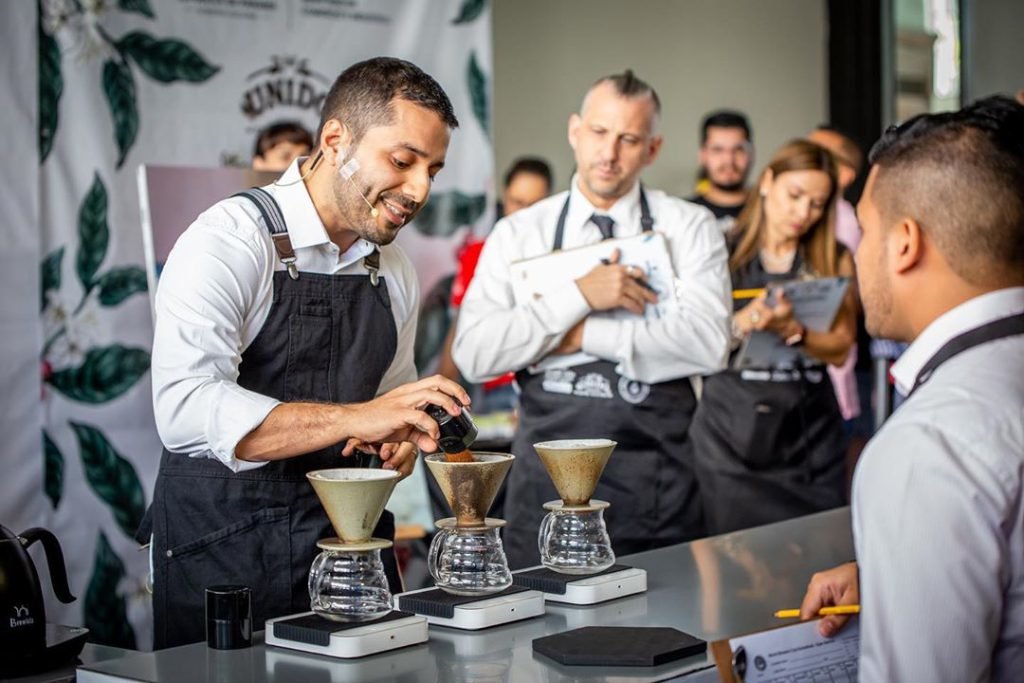
Geisha coffee is grown in a variety of regions across the world, including Tanzania, Colombia, and Peru, but gained its recognition from Hacienda La Esmeralda, a family-owned coffee establishment in the highlands of Boquete, Panama. They were one of the first farmers to obtain the original seeds from Costa Rica in the 1950s and are seemingly the reason Geisha coffee rose to fame. In 2004, their creation won the Best Coffee Award and landed them the first-place spot for four consecutive years after.
Despite its popularity and renown, it’s not easy to get your hands on the world’s best coffee — Geisha roasts are not commonly found in local coffee shops and cafes. Since the beans are difficult to cultivate and there isn’t a strong demand in the market yet, you will need to do a bit of research before finding the real thing. It’s more likely to find Geisha competing in the final rounds of the most prestigious coffee competitions, such as the World Barista Championship and the World’s Brewers Cup. Starbucks has nothing on these guys.
So, is Geisha coffee really worth the steep price tag? In a nutshell, yes.
Aside from its impressive record of placing first in countless competitions across the world and its incredible rating from Coffee Review and SCA, the flavors are unlike any other coffee bean. Some report a floral aroma that transitions into a sweet, honey finish, while others note a citric essence, similar to a creamy, fresh mango. Despite the complexity of the Geisha’s zest, one thing’s for sure — a cup this good is worth every penny. All 100,000 of them.
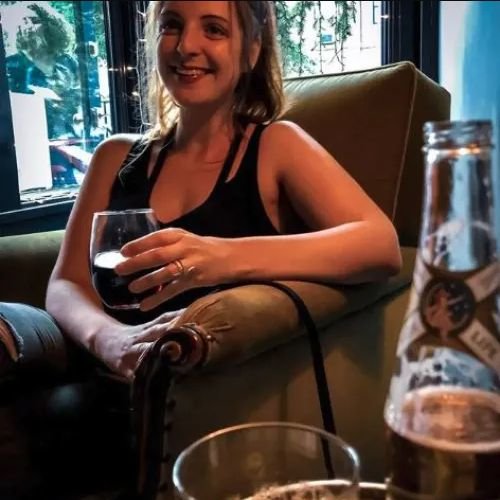
BRCC and Bad Moon Print Press team up for an exclusive, limited-edition T-shirt design!
BRCC partners with Team Room Design for an exclusive T-shirt release!
Thirty Seconds Out has partnered with BRCC for an exclusive shirt design invoking the God of Winter.
Lucas O'Hara of Grizzly Forge has teamed up with BRCC for a badass, exclusive Shirt Club T-shirt design featuring his most popular knife and tiomahawk.
Coffee or Die sits down with one of the graphic designers behind Black Rifle Coffee's signature look and vibe.
Biden will award the Medal of Honor to a Vietnam War Army helicopter pilot who risked his life to save a reconnaissance team from almost certain death.
Ever wonder how much Jack Mandaville would f*ck sh*t up if he went back in time? The American Revolution didn't even see him coming.
A nearly 200-year-old West Point time capsule that at first appeared to yield little more than dust contains hidden treasure, the US Military Academy said.












